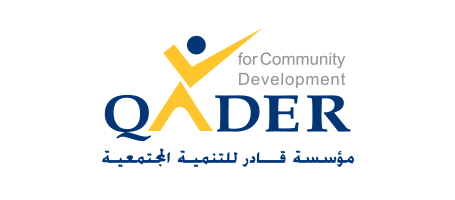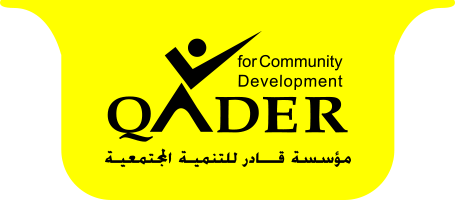QADER holds a seminar on the role of DPOs in advocating PwD rights

QADER for community development held a seminar in Bethlehem on 7/3/2013 entitled "The role of organizations of persons with disabilities in the defense of rights" in the presence of representatives of persons with disabilities and their organizations, and representatives from relevant government ministries and some representatives of the local organizations working in this area, as well as journalists and interested parties.
This seminar comes in a series of seminars that address advocacy issues of persons with disabilities within the framework of the preparatory work carried out by QADER to develop its reference documents in the field of advocacy, which aims to institutionalize this work in the advocacy of the rights of persons with disabilities, and developing the organization’s action plan on this area in addition to forming a committee of stakeholders to prepare for a national conference later this year on advocacy for disability issues in Palestine.
The seminar was started with a welcoming message from Adnan Ramadan in which he explained the importance of in-depth analysis of the problems and challenges faced by PwD, and building collective intervention plans that makes some specific, cumulative and consistent shifts that are based on the collaborations between all the parties and activities instead of dispersion. Also, he reviewed some of the recommendations of the previous seminar in the context of the revision of laws and policies and putting up questions related to the role of organizations of persons with disabilities in advocating PwD rights.
Mr. Awad Ibayyat, PwD union representative in Bethlehem, talked about DPOs in terms of their representation, structure, and their roles in advocating the rights of PwD. He pointed out that the Union represents the individuals’ interests supported by the power of individual membership. The primary role of these organizations is the enforcement of the law as aspired by some international experiences in this field.
Mrs. Reem Thahir, Coordinator of ASWAT Network, explained that the origin of ASWAT was the need to address the issues of persons with mental disabilities, and transform it into a structured social movement in order to empower this category.
Mrs. Asma Dies talked about her experience as a mother to an autistic son, as she didn’t know what to do or where to go for helping her son. She said” but through the help of ASWAT organization, I was able to share my story with parents that suffer from the same situation, I was able to train my son, and know about his rights”. Mrs. Dies referred to the shortage of experts in some specialties in Palestine, and she asserted that most important thing is the parents commitment in organizations that gives them confidence and power, and that any change in PwD reality wouldn’t be effective without the active involvement with PwD and their families.
Mr. Raed Amireh, Director of Relief and Social Services Program at UNRWA – Bethlehem, gave a brief presentation on the role of coalitions and networks to advocate disability issues in terms of representation, activities, strategies, and advocacy priorities in these coalitions. He pointed out to the existence of collective work in the framework of coalitions and networks, but described it as poor and need to be developed and expanded.
Following the key note speeches by the panelists, many inputs were made on the role of PwD and their families. And DPOs; especially in being decision makers in the organizations that work in this field. Also the participants acknowledged the importance of working with the media, and going beyond dealing with disability issues ad cover news for activities and events. And building medial awareness that is sensitive to PwD issues and rights. Participants also referred to lack of confidence between PwD and the organizations working in this field (governmental or non-governmental), and the importance of overcoming this challenge. They also spoke about the importance of prioritization aside to providing services and programs for all PwD, and not for the majority because this would lead to exclusion.

